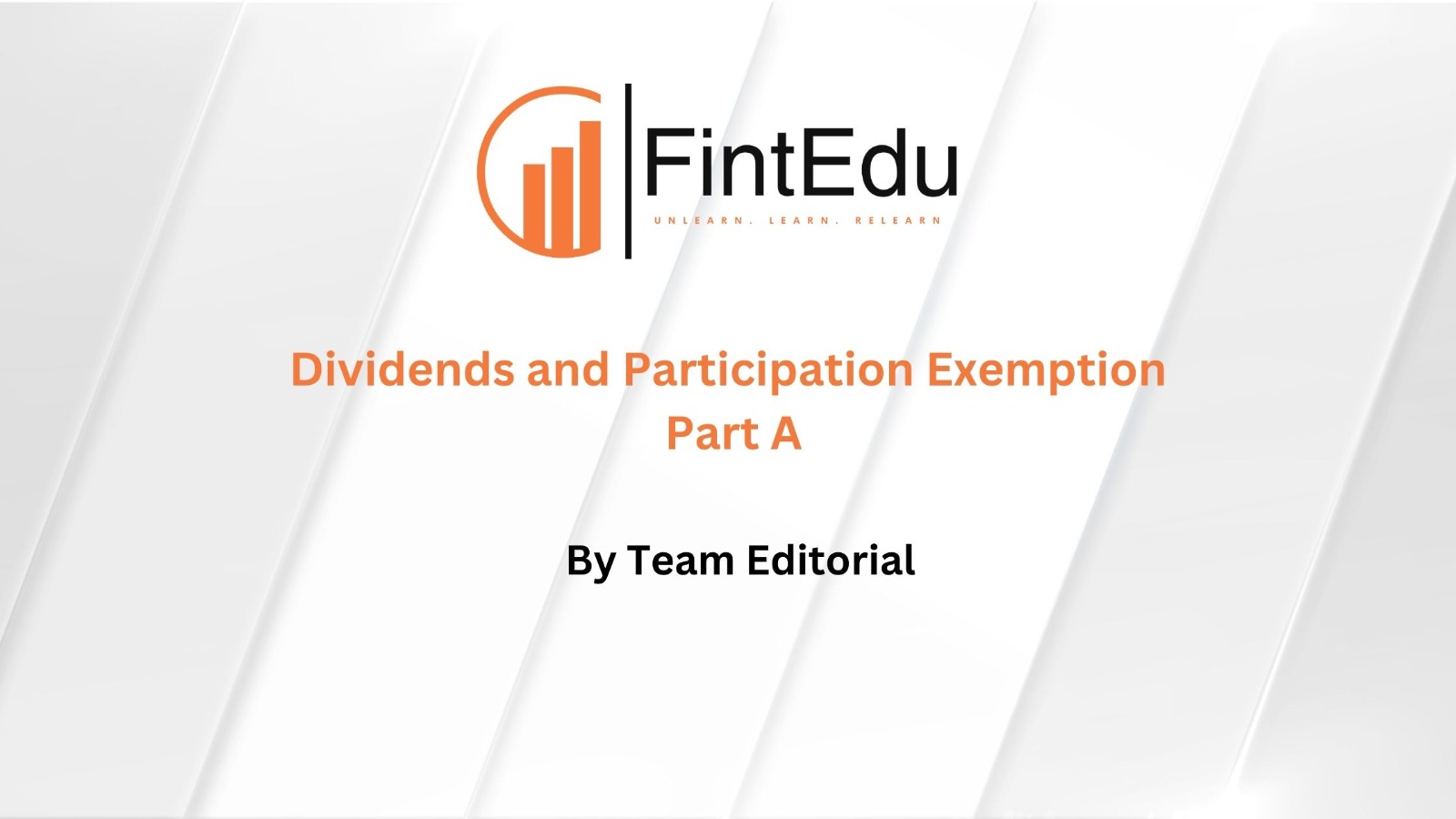LISTEN TO THE ARTICLE
The UAE introduced the Corporate Tax Law, effective from 1 June 2023.
One of the important aspects of the said law is “Participation Exemption”
available to Taxable Persons for dividends and other profit distributions,
capital gains, etc., where a Taxable
Person holds a significant, long-term ownership interest in a juridical person.
The concept of Participation Exemption is explained in 2 parts. Part A explains the meaning of dividend and its taxation in the UAE. Part B discusses the meaning and manner of computing the Participation Exemption, tax deduction for related expenses and tax groups’ eligibility to claim exemption.
A. Meaning of Dividend and Profit Distributions
1. Ordinary Dividend: This includes payments made in respect of shares or other participation rights in a company's profits, payable out of profits, retained earnings, or reserves of the company. Generally, interest on loans to wholly-owned subsidiaries, income from convertible debentures or bonds (unless converted into shares), are not considered dividends. However, such interest can be considered as dividend when the lender shares the company's risks and the instrument is classified as equity by accounting standards.
2. Dividend in kind: Dividends may sometimes be distributed in the form of securities, properties or other assets of the company. The value of such dividends is typically based on the recorded value in financial statements, usually at market value (MV).
3. Other Distributions: Any payment or benefit related to the acquisition of own shares (buy-back), redemption, cancellation of shares (reduction of capital), or termination of ownership rights, which constitutes a distribution of profit, is treated as a dividend. The dividend amount is usually the difference between the proceeds received and the paid-up value of shares, limited to distributable accumulated profits. The balance amount is treated as capital gains.
4. Non-arm's length payments: Payments/benefits to related parties or connected persons that do not comply with the arm's length principle can be treated as dividends. They are known as constructive dividends and are made available to the recipient without a formal distribution. It can occur when a company overcompensates a related party, and it is not at arm's length.
The guide enumerates instances when a particular payment may be considered as dividend or not. This may not be a simple question in real life scenarios. For instance, many quasi-debt instruments are issued by companies to strategic investors. Determining the nature of such instruments – whether equity or debt – to decide whether the income distributed to the investors is in the nature of dividend or interest could be a challenging. Further, determining the MV of dividend in kind or non-arm’s length payments could be challenging in case of startups or companies with dynamic business model.
B. Taxation of Dividends and Other Profit Distributions
Once it is crystalized that the payment is in the nature of dividend or other distributions, the question arises about the manner of taxation.
-In case of a natural person – if dividend is received in the course of business in the UAE, from a foreign juridical person and if the conditions Participation Exemption are not met.
-In case of a resident juridical person – if dividend is received from a foreign juridical person and if the conditions Participation Exemption are not met.
-In case of a non-resident juridical person – if the person has a PE in the UAE, dividend received from a foreign juridical person is attributable to the PE and if the conditions Participation Exemption are not met.
The concept of Participation Exemption is discussed in detail in Part B of this series.
Disclaimer : The content on this website is provided for general informational purposes only. It is not intended as professional advice and should not be construed as such. The information is based on the knowledge and experience available at the time of writing and is subject to change.
Contributor
Related Posts

@@PLUGINFILE@@/Tax%20Group%20in%20UAE%20%E2%80%93%20Limitation%20on%20Interest%20Deducti...
Read More
@@PLUGINFILE@@/New%20Pension%20Law%20in%20the%20UAE%20and%20Emiratisation.mp3 LISTEN TO T...
Read More
@@PLUGINFILE@@/Saudi%20Arabia%20%E2%80%93%20Tax%20Measures%20to%20Boost%20Investments%20and%20...
Read More